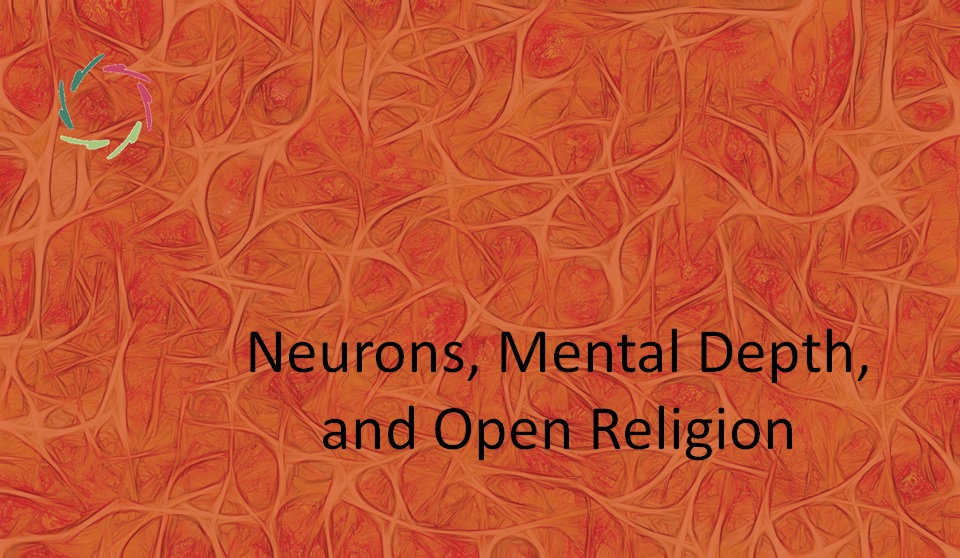Neurons, Mental Depth, and Open Religion

Many people sense a connection between these three concepts, but how strong and in what ways? In reality, we know quite a lot about their interrelatedness.
Patterns
It all starts, more or less, with synapses, neurons, and the patterns they create — essentially mental patterns. These patterns underlie all mental activity, illustrating the profound connection between brain structure and function.
This has been a scientific focus for over a decade, with the research focus changing from neurons to neuronal networks. Understanding these networks opens new avenues in neurophilosophy, influencing perspectives on human consciousness and behavior. It’s too bad that many philosophers still don’t grasp this since it changes everything in the philosophy of mind and therefore in all human-related matters, from health to geopolitics and more.
Mental depth and Open Religion
Mental depth correlates with the broadness and complexity of mental-neuronal patterns, challenging us to understand their content. Nevertheless, this complexity can lead to profound insights and experiences, enriching our perception of reality.
At the same time, this allows one to experience the world essentially differently than at the surface of things. This likely mirrors how religious individuals have historically perceived their environment. It’s the same world, of course, but looked upon with ‘eyes of soul’ — nothing new, as old as people have had a certain brain complexity.
No denigration
This doesn’t explain anything away. Instead, the complexity at this level enhances our appreciation of the depth, beauty, and profound meaningfulness that can emerge. Such complexity also hints at the perceived interconnectedness of all things, a concept deeply embedded in many spiritual traditions.
Moreover, this doesn’t show where the patterns originate or even whether this is relevant. They likely originate somewhere in the universe, either within or beyond us.
No denigration — it doesn’t matter so much.
‘Synaptic Whispering’
Of course, this is a metaphor. It conveys nicely something to feel.
Imagine each synapse in the brain as a ‘whisperer,’ together with transmitting its electrochemical impulses. These whispers are subtle emotional and spiritual signals, collectively creating a tapestry of mental patterns that shape subconscious thoughts and feelings.
Many of these exchanges together can carry emotional and spiritual information, contributing to our sense of depth and connection to the universe.
How we hear them
In Open Religion, these whispers can be seen as the basis for spiritual experiences. They allow individuals to sense a connection with something greater than themselves, providing a neurological foundation for feelings of transcendence and unity often described in religious experiences.
From a mental depth perspective, mental content is enriched by the complexity and subtlety of these synaptic whispers. Thus, our deepest thoughts and emotions are shaped by these delicate, almost mystical exchanges at the synaptic level.
At the surface, we can barely hear broadly distributed patterns of whispers, especially in a noisy environment.
If we hear them, they sound like spirits in the sky.
Maybe they are?


